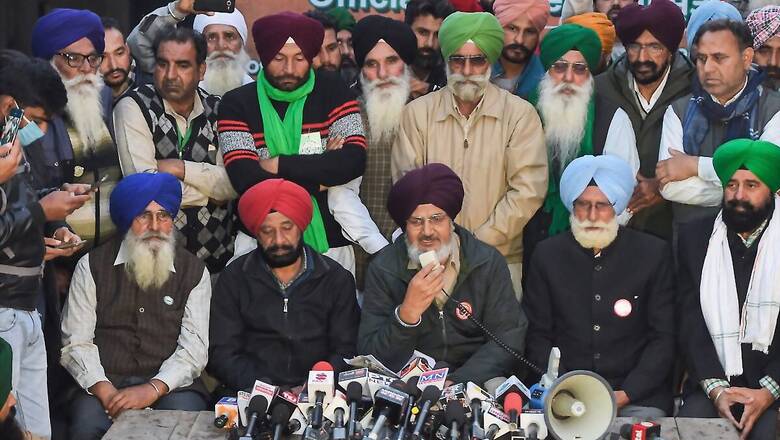
views
For the last one month, we in India have been hit with a rather incredible sight. Thousands of farmers huddled together at the borders of Delhi, braving the winter cold. Their demand? Repeal the three recently passed farm laws. In other words, keep the decades-old monopoly of middlemen, in each state and every district, over the sale of agricultural produce.
That is curious. Why would a farmer, or anyone for that matter, insist on giving away a portion of their income to middlemen? Further, these agricultural reforms have not taken away any existing options from the Indian farmer. Instead, they have been given a new one. Something about these protests simply doesn’t add up.
First, we know that these are reforms that virtually everyone has been pushing for. The Congress manifesto for 2019 elections made very similar promises. So did the manifesto of the Aam Aadmi Party in Punjab. The Bharatiya Kisan Union has always demanded that farmers should be allowed to sell their produce anywhere in India. So where are these protests coming from?
Let us turn this question on its head. While political parties and farmer unions have long agreed on the need for these reforms, why did previous governments not implement them? Perhaps because there are powerful lobbies here, which are capable of manufacturing dissent. The system of mandis and middlemen runs deep and goes back decades. In the Indian context, they are woven closely within local power structures. When any of these strands is pulled, it threatens the structure of political parties themselves.
Some leading voices in the movement have suggested that farmers are protesting out of a general unease with the government, instead of the specifics of the law. This explanation can only be regarded as fanciful. The current year has seen reasonable growth in agricultural GDP. We have had a good monsoon. Other indicators such as tractor sales are at record highs. The usual conditions that could lead to discontent among farmers are missing.
Hence the term manufactured dissent.
This has been happening in India for a while. Every domestic matter, big or small, taken to an international stage, trying to give India the appearance of a nation in crisis. Does anyone remember NEET-JEE and how activists all the way from Sweden tried to get involved? The current farmer protests have a similar footprint. The movement has struggled to find recruits even in Rajasthan, Uttar Pradesh and Madhya Pradesh, let alone Bihar, Bengal, Karnataka, Maharashtra or Tamil Nadu. Yet, it has managed to enlist support of 36 British MPs and even the Prime Minister of Canada.
We have to ask who is leading these protests and who benefits from this. The banner most commonly seen in these protests is that of the hammer and sickle. Half of India’s population depends on agriculture. If they wanted a political outlet, would they really turn to the Communists? Did the Communists not lose their mass base in India a long time ago?
The apparent scale of these protests is not an argument at all. If anything, these protests are far too small compared to the sheer size of the constituency they claim to represent. Half of India’s population works out to around sixty crore people. If 60 crore people perceived a threat to their livelihood, the nation would have been plunged into instant chaos. It has now been seven months since these laws were passed. All we have is a little over ten thousand protesters, mostly from one state. They could not possibly represent farmers from across India. But the crowd is big enough to fill up space in newspapers across the world. And that is what really seems to be the objective.
So who benefits from this? One of the few advantages that India enjoys over China is that we are a democracy. Because of this, people around the world trust our intentions more than those of the Chinese government. China wants the world to believe that India has no space for dissent, that we are as much of a dictatorship as they are. If people think that there is little to choose between India and China, we lose this advantage completely.
Can these interests of China be ignored? Can the filial links between Indian Communists and the Chinese government be ignored? All the paranoid anger during these protests seems to be directed at private enterprise. But, more specifically, big Indian businesses. There is no call for protest or boycott of Chinese businesses. In fact, much of the same lobby mocked the ban on Chinese apps and the push for Atmanirbhar Bharat.
The talk of a foreign hand often gets a bad name. And for good reason. In the past, governments have spoken of a foreign hand to cover up for their own shortcomings. So they often say that talk of a foreign hand is like crying wolf. But if you really think about it, the other lesson in that story is that sometimes there really is a wolf.
The writer is is a mathematician, columnist and author. Views expressed are personal.
Read all the Latest News, Breaking News and Coronavirus News here




















Comments
0 comment